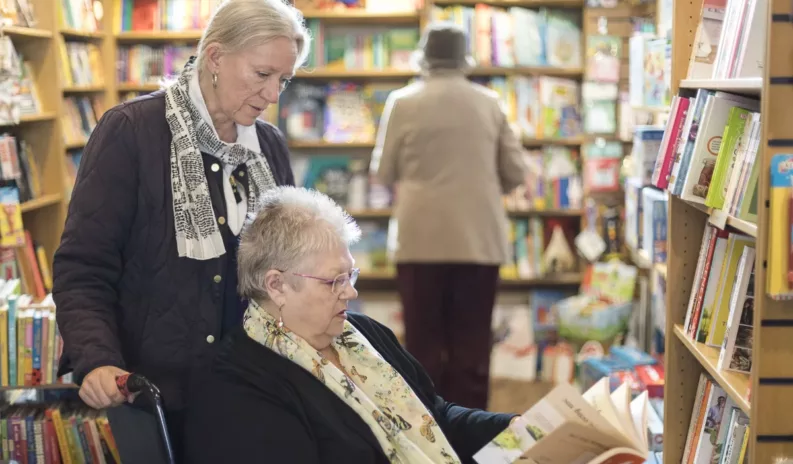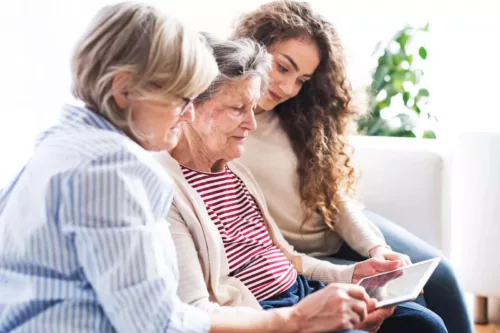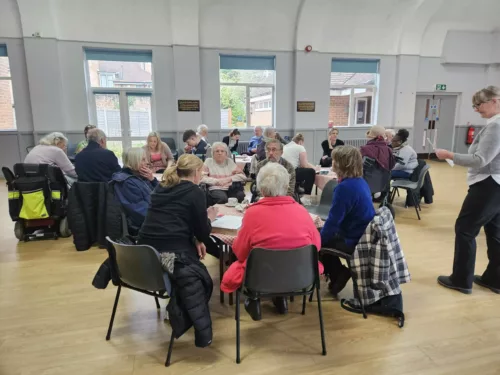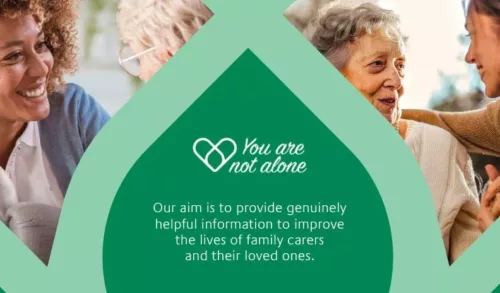
In an emergency it is important to act fast. Knowing what to do when a loved one is ill can make all the difference and give you that confidence to take what can be life-saving action. At GoodOaks Homecare, all our care professionals are first aid trained to ensure you or your loved ones are always in safe hands. We believe that sharing knowledge is important, because having confidence if something happens when you are visiting or out and about with a loved one, makes all the difference.
What should I do if my loved one has a fall?
According to the NHS, “falls are a common, but often an overlooked” source of injury. More than 50% of the over 80s will have one or more falls a year. These can be upsetting and break down confidence so it’s important to know what to do for yourself or your loved one so that they can make the best recovery.
If you have a fall and can get up:
- Stay calm.
- If you can get up, do so slowly and gently. Roll on to your hands and knees and use furniture to get up if you can. Sit down and make sure you are ok before trying to get up or continue your activities.
If your loved one falls while you are with them, ensure that they rest and do not try to continue too soon. Check if they have injured themselves by examining the area of the fall. You may wish to administer pain relief or call the GP.
If you cannot get up:
- Stay calm.
- Raise the alarm using a personal alarm if you have one, or if you can get to your mobile phone or landline call 999. If not, bang on the floor or walls and call for help. If you are able to reach, get a coat or blanket to cover you and cushion your head if you can. Stay as warm and comfortable as you can until help arrives. Personal alarms or keeping mobile phones in a pocket will help you feel safer and more confident as you will know you can raise the alarm easily.
What should I do if my loved one has a heat stroke?
Heat stroke can be very serious. Symptoms include: excessive sweating, dizziness, vomiting, headache, confusion and a fast pulse.
If you think your loved one has a heat stroke, it’s important to cool them down. The NHS recommends:
- Keep them calm, talk to them.
- Get them to lie down in the shade or a cool room.
- Get them to drink some water.
- Cool the skin with damp towels, water spray or using ice packs wrapped in a towel to protect the skin.
- Keep them talking and reassure them.
If they are not better after 30 minutes, if symptoms worsen or they have a fit or go unconscious – it is time to call 999.
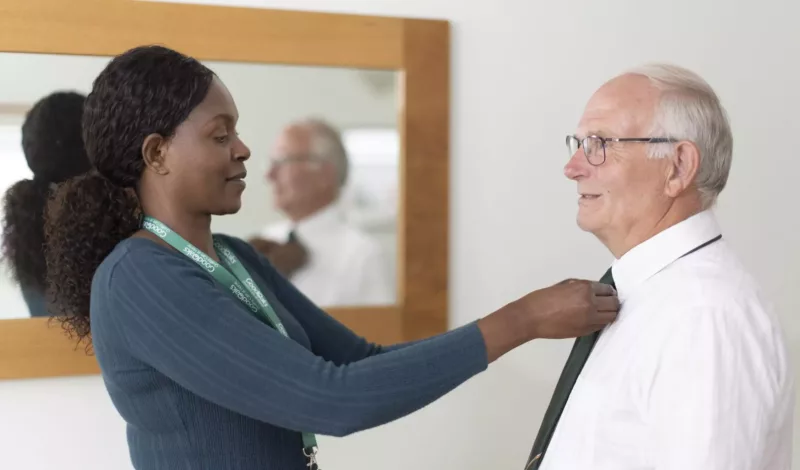
What should I do if my loved one has hypothermia?
Call 999 immediately or go to A&E. Hypothermia is a medical emergency where the body temperature suddenly drops below 35C.
Your loved one will be shivering, their skin and lips may go blue, they may be very sleepy and may have trouble speaking.
While waiting for the ambulance:
- Stay with them, talk to them and keep them awake. Reassure them.
- If they have wet clothes on, get them into warm dry ones, and cover them with blankets and warm duvets.
- Give them a warm drink and a sugary snack if they are conscious.
- Don’t rub hands or skin as it can be very painful and cause injury.
What should I do if my loved one has a stroke?
- If you suspect your loved one is having or has had a stroke, please immediately call 999 and request an ambulance.
- With a stroke, it is important to act fast to prevent as much damage as possible.
- Face: has their face dropped on one side? Can they smile?
- Arms: can they raise their arms up together?
- Speech: is their speech slurred? Are they struggling to talk?
- Time: if you notice any of these symptoms, then it is time to call 999.
Other symptoms can be confusion, dizziness, balance problems, loss of vision or consciousness.
There are so many reasons for strokes, but the most important thing is to take quick action and call 999. While waiting for help remember to stay calm, reassure your loved one and talk to them, keep them comfortable in a chair or bed. If they are unconscious, check their airways and ensure they are able to breathe. Your 999 operative will be able to talk you through this when help is on its way.
What should I do if my loved one has a cardiac arrest ( or heart attack)?
Firstly, a cardiac arrest is very different to a heart attack. In a heart attack, the heart is starved of oxygen, usually because a clot has got into one of the arteries. The person may be conscious. A heart attack can then lead to a cardiac arrest.
A cardiac arrest is an issue with the electric currents going across the heart. It may mean it beats irregularly, and will need an electric shock to stop the irregular signal, so that the proper signal can start again. Here is more information from the BHF.
- The most important thing to do is to call 999 immediately. Your 999 operative will be able to talk you through what to do.
- If your loved one is unconscious, firstly, make sure they are safe. Check if they are breathing. If you can, get someone to call 999 and someone to find the nearest public defibrillator.
- The normal next step if they are unconscious is to start CPR – involving breathing oxygen into the lungs and manually pumping blood around the body. This is done through two breaths into the person’s mouth (while pinching their nose shut,) then compressing the chest using two hands to a depth of 2 inches at a rate of 100-120 per minute.
- BE AWARE: CPR for the elderly is a difficult process, as it often leads to broken bones and serious injury. Your 999 operative will be able to advise and talk you through. The most important thing is to get an ambulance there asap.
GoodOaks Homecare provides live-in and visiting homecare to help people live independent lives in their own homes for as long as possible. All our care professionals are first aid trained to the highest standard. There are lots of ways GoodOaks Homecare care professionals can help you or your loved one live an independent and dignified life. To find out more, visit goodoakshomecare.co.uk



